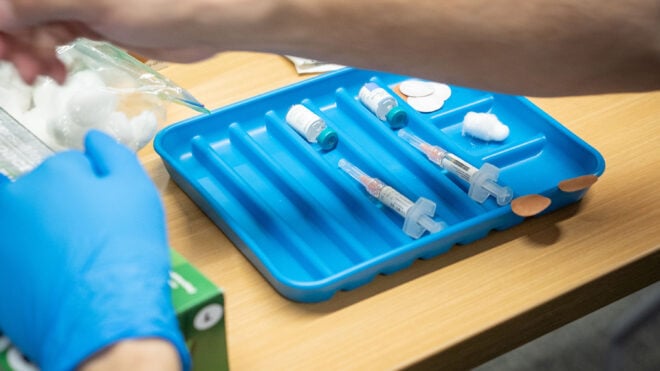Sure, you've got the pregnancy glow, but during the third trimester, you may also experience less pleasant changes in your skin. For some women, pregnancy is a time when the skin improves and acne subsides. But most women experience at least some itching and redness, as well as potentially long-lasting skin changes, such as stretch marks.
Dietary and lifestyle changes can help, but it's also important to accept that some changes — those stretch marks, for example — are evidence of your role as a mom. Deena Blumenfeld, a Lamaze-certified childbirth instructor in Pittsburgh, Penn., declares that "stretch marks are the stripes of a tiger mama. Embrace them and be confident."
Changes in the Skin
"One of the most common changes that I see in the skin is melasma or the mask of pregnancy," says Dr. Debra Jaliman, author of "Skin Rules: Trade Secrets from a Top New York Dermatologist." She explains, "It may start in the second or third trimester. Brown patches appear on the face, and it gives a blotchy uneven appearance to the skin."
Many women experience itching, redness and eczema, as well as skin tags and stretch marks. Less commonly, some women experience oily skin and acne. Others develop varicose veins or spider veins, according to the American Pregnancy Association. Additionally, some women may notice a dark line running from the naval to the pubic bone. This is called linea nigra.
RELATED: 20 Discipline Mistakes All Moms Make
Causes
"The hormones of pregnancy cause many of the late-third-trimester skin concerns," says Camilla Bicknell, a nurse practitioner from Monument, Colorado, and co-author of "The Pregnancy Power Workbook." Hormonal fluctuations cause eczema, darkening skin, skin tags, oiliness and acne.
Stretch marks are caused by the stress your skin experiences as it stretches to accommodate your growing baby. Varicose veins are often hereditary and occur as a result of the increased blood flow to your baby.
Increased blood flow causes the pink flush you may notice in your face. Your growing baby produces more waste, which your skin, liver and kidney must process. This increase can cause increased sweating and itching.
Prevention
Melasma and strech marks can be hard to avoid if they're in your genes. Advises Bicknell, "The tendency toward stretch marks is generally an inherited condition (if your mom or grandma had them, you probably will). Preventing them completely is nearly impossible, but having a gradual weight gain rather than rapid growth can help lessen these iconic skin changes." Dr. Jaliman recommends a daily application of 30 SPF sunscreen to minimize skin darkening as much as possible.
Other skin-friendly measures include drinking plenty of water every day to flush toxins and waste from your system, putting less stress on the skin, liver and kidneys. To minimize varicose veins, avoid standing for long periods of time or crossing your legs. Wear support hose and put your feet up throughout the day. Eating more fruit or taking a vitamin C supplement can also reduce varicose and spider veins, according to the American Pregnancy Association.
RELATED: Fostering an Attitude of Gratitude
Treatment
"Generalized itchy skin, dry skin, skin tags and discoloration are best dealt with by using good emollient creams," Bicknell says. "Get through those last few weeks of pregnancy assured that most of the hormone effects will lessen after delivery."
A healthy diet can also reduce itchiness and improve skin's appearance. Dr. Jennifer Walden, a cosmetic plastic surgeon from Austin, Texas, suggests adding more yogurt or kefir to your diet: "Both foods are rich in probiotics, the friendly bacteria linked to better digestion and reducing skin inflammation." She also suggests eating foods rich in Omega-3 fatty acids, such as salmon, which rebuild skin tissue.
Dr. Jaliman cautions, "If there are itchy red raised bumps on the stomach and arms and legs, it could be something called PUPP. This should not cause alarm and can be treated with both topical prescription medications or oral medication."



